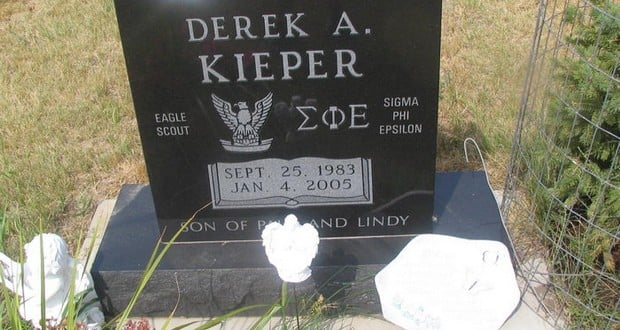Seat belts were uncomfortable and restrictive for drivers and passengers, but the uproar over mandatory seat belt laws was mostly ideological. Do you know who the Anti-Seatbelt Law Advocate Who Died in a car crash was?
Derek Kieper, an anti-seat-belt advocate, once stated, “Uncle Sam is not here to regulate every facet of life regardless of the consequences.” He died later after being thrown from his vehicle without a seat belt. The debate over mandatory seat belt laws was primarily ideological.
The Irony Behind Derek Kieper’s Passing
Despite the vital role automobile seat belts have played in saving thousands and thousands of lives over the last several decades, there is still a group of drivers and passengers who refuse to wear them for a variety of reasons:
- They find them too uncomfortable or confining.
- They don’t believe in their efficacy.
- They’ve heard that wearing seat belts may cost them their lives in certain accidents.
The first is a 17 September 2004 editorial in the Daily Nebraskan titled Individual Rights Buckle Under Seat Belt Laws, written by Derek Kieper, a 21-year-old senior at the University of Nebraska-Lincoln, in which the writer argued that Uncle Sam is not here to regulate every facet of life no matter the consequences and that Democrats and Republicans alike should stand together to stop these laws that are incongruous.“
According to an article in the 4 January 2005 Lincoln Journal Star, Mr. Kieper not only died in a car crash but the tragic mishap that claimed his life was the very type of accident in which seat belts have proven so effective in saving lives by preventing passengers from being ejected from vehicles:
Kieper, a 21-year-old senior at the University of Nebraska-Lincoln, was killed when the Ford Explorer in which he was a passenger went off an icy section of Interstate 80 and rolled several times in a ditch. Kieper, riding in the Explorer’s back seat, was thrown from the vehicle. (Source: Operation Sports)
Avoiding the Use of Life-Saving Feature
In the early 1980s, when David Hollister introduced a seat belt bill in Michigan that imposed a fine for not wearing a seat belt, the state representative received hate mail comparing him to Hitler. Even though the federal government required lap and shoulder belts in all new cars beginning in 1968, only 14 percent of Americans wore them regularly.
At the time, resistance to life-saving devices was the norm. Seat belts were uncomfortable and restrictive for drivers and passengers, but the uproar over mandatory seat belt laws was primarily ideological. One of Hollister’s Michigan House colleagues called the seat belt bill “a pretty good lesson in mass hysteria created by a corporate-controlled media” and predicted that the government would soon outlaw smoking. Another person suggested that anyone who voted in favor of the bill be recalled.
In the 1980s, the battle over seat belt laws reflected widespread criticism of government regulation in a free society. The debate began in 1973 when the NHTSA mandated that all new cars include an inexpensive technique known as a seat belt interlock mechanism, which prevented a vehicle from starting if the driver was not buckled up. (Source: Operation Sports)
Image from Datos.Freak
